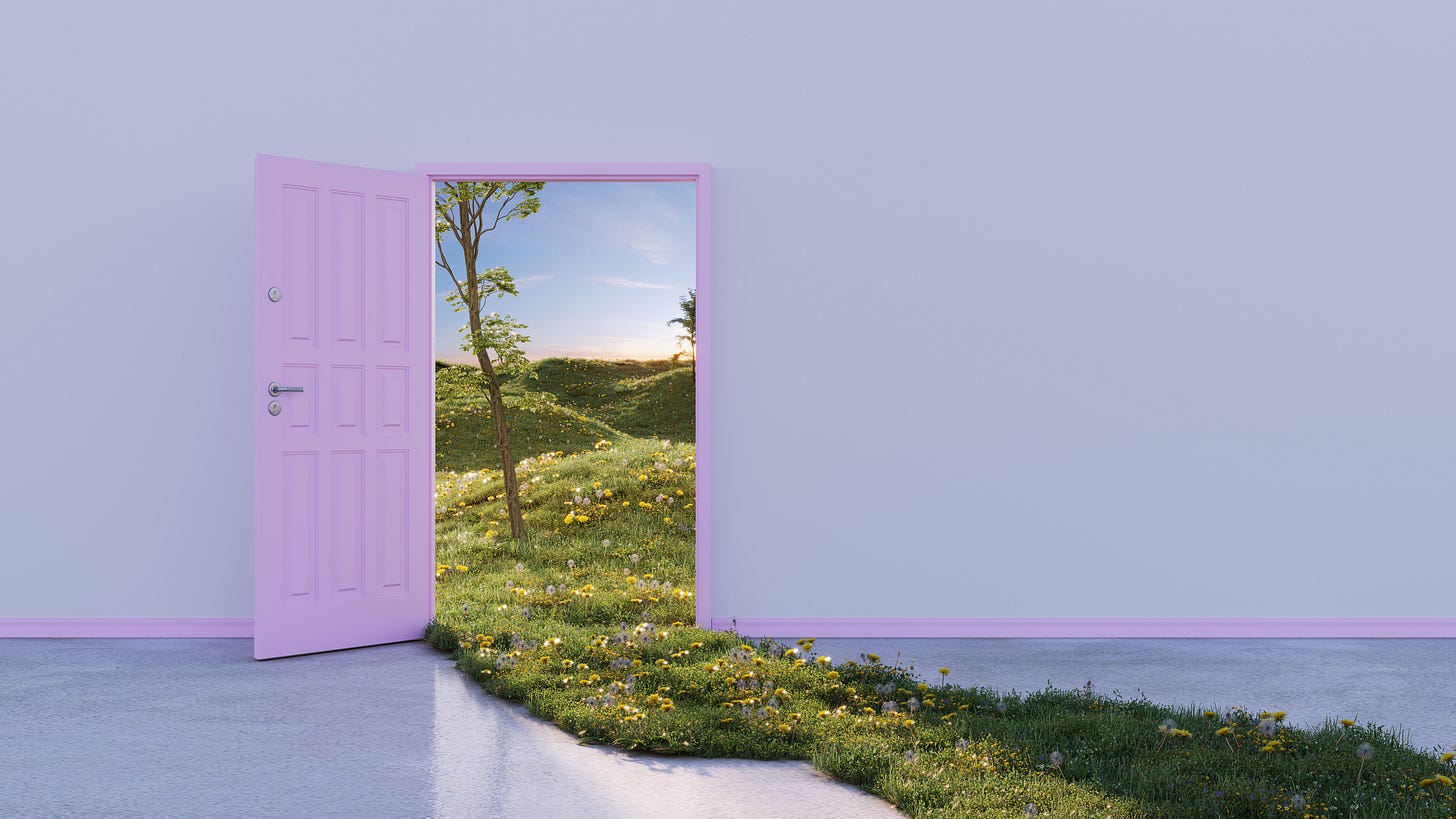What to do when the world feels like it’s too much
Why it's important to cultivate hope and how to do it
“Hope doesn’t preclude feeling sadness or frustration or anger or any other emotion that makes total sense. Hope isn’t an emotion, you know? Hope is not optimism. Hope is a discipline… we have to practice it every single day,”
—Mariame Kaba
I’ve spent the last two years of focused solely on writing and promoting my new book, which is all about how women can (and must) tap into their power and act in order to change their lives, and even to change the world. Given the state of our country, it’s not surprising that on my book tour, one of the most common questions I get is about how to combat the hopelessness that comes from feeling powerless. In the midst of an administration trying to usurp our individual power, I’ve been advocating for women to find ways to collectively hold onto it. And not just their power, but their hope.
What I’ve learned through my activism is that hope is a choice, a practice, and as activist Mariame Kaba said, a discipline. And yet, since the election, I myself have often felt disconnected from my own power and passions. It’s felt as if all of the things I cared about and prioritized in my life were removed from my field of vision and replaced by existential threats and all-consuming anxieties in an America that is now run by autocrats.
Working? Difficult. Watching television, reading or listening to music? Tedious. Catching up with friends? Indulgent. When I attempted to tune into the world, I felt overwhelmed. When I tried to tune out, I felt numb. Finally I found my footing in recent weeks by attending some small but incredibly passionate gatherings of women across the country to discuss my book but, more importantly, to talk about how to keep going.
The Anatomy of Hope
I’ve spent decades working with women from all walks of life—survivors of gun violence who’ve become activists, corporate executives who’ve become advocates, women in midlife who discover their voices. Through all these experiences, it’s become clear to me that hope is not something we stumble upon. It’s something we cultivate, nurture, and even fight for when cynicism begins to creep in.
Hope is a positive emotion and belief in a positive future, motivating us to create change, while it’s opposite emotion—cynicism—is a distrust of others’ motives, believing people are inherently bad, leading to negativity and a desire to isolate. Hope embraces possibility and action for a better future, while cynicism embraces a predetermined negative outcome based on a fundamental distrust of others’ intentions
Hope is often misunderstood as naive optimism or wishful thinking, but it’s actually quite pragmatic. Think of hope as having three essential components: awareness, possibility, and action. First, we must see our situation clearly, without denial but also without letting it define us entirely. Second, we must allow ourselves to imagine that things could be different. And third—this is crucial—we have to take one step, no matter how small, toward action.
The Collective Nature of Hope
True hope is not a solitary endeavor; it’s created in community, in the spaces where we share our stories and realize we’re not alone. Every women’s movement in history has understood this: from suffragettes to civil rights activists to modern movements for equity and justice, hope has always been a collective endeavor.
As I sat down to write this piece, I happened to listen to
’s latest episode of her podcast, Pulling the Thread, which is centered around this quote: “You have to do the work yourself, but you can’t do it alone.” There are many versions of this sentiment, from Brené Brown’s quote, “We don’t have to do all of it alone. We were never meant to,” to the Jewish wisdom, “You are not obligated to complete the work, but neither are you free to abandon it.”I’ve witnessed the transformative power of women coming together—whether in living rooms, community centers, or online spaces—and encouraging one another. When one woman says, “I thought I was the only one,” and ten others nod in recognition, something shifts. The isolation that kills hope begins to crack, and we remember that our struggles are not personal failings but symptoms of larger systems we can challenge together.
Keep reading (or upgrade!) for how I found my hope again, the glimmers of encouragement I see, and how you can cultivate hope in your life.




